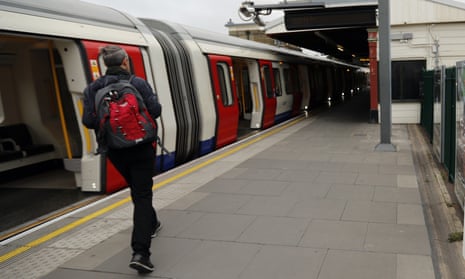Transport for London (TfL) has insisted it is not facing a financial crisis despite planning for a near £1bn deficit next year after a surprise fall in passenger numbers.
The capital’s transport authority has shelved some tube upgrade plans, with its finances under pressure since the axing of a grant from the UK government worth £700m a year.
Unions urged the government to immediately reinstate the grant, warning of a “funding crisis” that “could have devastating consequences for safety and services”.
But TfL said it is on course to achieve an operating surplus by 2021, with coffers swollen by revenues from the Elizabeth line, or Crossrail, which is due to start carrying passengers through central London at the end of 2018.
There are fears at City Hall that any prolonged decline in passenger numbers, thought to be partly due to economic uncertainty, changing work patterns and internet shopping, could have serious implications.
A recent leaked email from a TfL finance director told staff that its cash reserves could see London through “for a short period of time” with a large operational deficit, but added: “This is clearly not a sustainable position to be in as an organisation.”
The financial position has led to questions over the freeze on fares imposed by the mayor, Sadiq Khan, and whether provision will be affected, with about 7% of bus services earmarked to go.
However, TfL believes the fares freeze has kept usage relatively high, with the dip in tube numbers of 2% less pronounced than the sharp decline on some National Rail services in the south-east last year.
A TfL spokesperson said: “London is leading the way in showing how you can keep fares affordable, while still investing record amounts in creating world-class infrastructure.
“Although overall ridership is currently slightly lower than originally budgeted, ridership on the bus, tube and rail services is regularly outperforming that elsewhere across the country, helped by the fares freeze, the Hopper fare and improved reliability.”

Comments (…)
Sign in or create your Guardian account to join the discussion